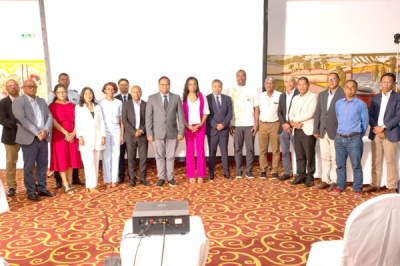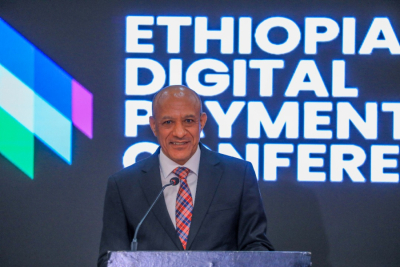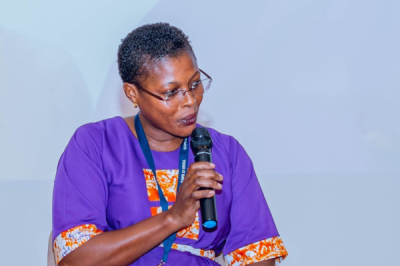The coronavirus pandemic accelerated digital transformation in Africa. In its wake, governments committed to strengthening telecom infrastructures and expanding network coverage to allow access to digital services for most of their populations. For those investments to be effective, the services offered by telecom operators need to be affordable to everyone, even low-income earners. This is why by overtaxing telecom services, governments are negatively affecting digital transformation.
In 2010, the level of taxation on the Sub-Saharan African telecom sector caused heated debates between governments and operators. Governments, which were intent on securing more revenues, claimed that the tax rates were fair in the ever-growing sector. On the other hand, the GSM Association (GSMA) was warning of the long-term dangers of over-taxing the telecom sector. The taxes would affect the viability of telecom operators but also negatively affect development. Ten years later, the issue is still much present and the level of taxes levied on telecom operators is rising.
By 2017, Sub-Saharan African governments had already introduced new taxes because of the growth recorded by the telecom sector over the years with new services. Seven years earlier, the region was considered the third most taxed region in the world after Central/Eastern Europe and the European Union, but ahead of Latin America, according to the Global Mobile Tax Review 2010/2011 report by GSMA and ITU. It is now the first most taxed ahead of North Africa - the Middle East, and the Asia Pacific. On average, the taxes paid by the sector represent 25% of revenues. In 2016, the telecom sector contributed US$13 billion to tax revenues in Sub-Saharan Africa. In 2018, this contribution rose to US$15.6 billion but in 2020, it declined by US$600 million year on year.
Threat to digital inclusion
While corporate taxes are already affecting telecom operators’ profitability, the most concerning are sectoral taxes like those levied on mobile and internet services. Indeed, those taxes can directly affect the cost of the services, making them unaffordable for some populations. As a consequence, telecom may experience a drop in revenues, profitability, and the amount of tax paid to governments.
In 2019, the World Bank estimated that in Sub-Saharan Africa, nearly 85% of the population was living on less than US$5 a day. In the region, the mobile penetration rate was 46% in 2020. At the same time, internet penetration was 34%, including 28% for mobile internet, according to Hootsuite and We Are Social. Also, the average cost of a 1.5 Gigabit mobile data plan was US$6.1 or 6.4% of gross national income (GNI) per capita according to the ITU. This is highly unaffordable considering that, according to the Broadband Commission for Sustainable Development, a data plan is considered affordable when its cost is about 2% of GNI.
With internet taxes, some countries like Uganda (which introduced a 12% internet tax) make the service more expensive and exclude more people from the digital economy. The tax also threatens the survival of several businesses like e-commerce operators and those in the video-on-demand segment.
According to GSMA, of the 1.084 billion people living in sub-Saharan Africa in 2020, 303 million people (28%) were connected to the Internet via mobile, 570 million people (57%) were covered by a mobile network but not using the Internet and 210 million (15%) were not covered by a mobile network at all. A total of 495 million people were subscribed to mobile services, representing 46% of the population. Also, the smartphone adoption rate was 48% because of the costs of smartphones (according to the Alliance for Affordable Internet-A4AI). Even the low-cost smartphones offered by some manufacturers are still inaccessible for most because of import duties. The situation prompted Chad to issue, on January 24, 2022, a 5-year tax exemption for the importation of mobile devices (both smartphones and feature phones), automatic data processing equipment (desktops, laptops, and tablets), and dedicated accessories.
Threat to financial inclusion
Over the last ten years, mobile money has become one of the strong segments in the telecom industry, with millions of users and billions of dollars in transactions processed. Four years ago, a few countries started taxing that segment. They included Uganda, which introduced a 0.5% withdrawal tax in July 2018. The same year, Tanzania set its mobile money withdrawal tax to 1% before reducing it to 0.5% in October. In 2019, Zimbabwe introduced a 2% tax on every mobile money transaction.
The growth recorded by the segment during the coronavirus pandemic convinced more governments to tap into that windfall to fund post-pandemic recovery. In 2021, Cameroon introduced a 0.2% tax on electronic transaction. This year, Ghana introduced a 0.5% e-levy. In those markets, the taxes (both new and old) have always given rise to protests and disputes. In the Ghanaian parliament, e-levy discussions even led to physical confrontations between the pro and anti-e-levy.
Nevertheless, the contested taxes and levies allowed some governments to raise more revenues than expected. For instance, the Uganda Revenue Authority estimates that from July to December 2018, the mobile money tax generated US$28.3 million of revenue. Despite such stellar performance, mobile taxes have hampered financial inclusion. According to the World Bank, those taxes forced wealthy individuals to use banks instead while low-income populations who depend on family remittances experienced a reduction of their already meager resources.
The United Nations Capital Development Fund (UNCDF) reports that mobile taxes demotivated off-grid renewable energy users (usually located in rural areas) who used to pay their bills via mobile money. The fact threatens the profitability of the off-grid energy segment and the jobs created. Mobile money tax can also affect the e-commerce and agriculture sector given that many small farmers buy agricultural inputs, make micro-savings, etc., using Mobile Money.
The GSMA reports that telecom operators are not against taxation. They support effective taxation that does not unnecessarily hinder growth and negatively impact marginalized groups, it explains. So, corporate taxation could be the most effective way for governments to capitalize on growth in the telecom industry since corporate taxes are levied on the service providers’ turnover.
Muriel EDJO



















